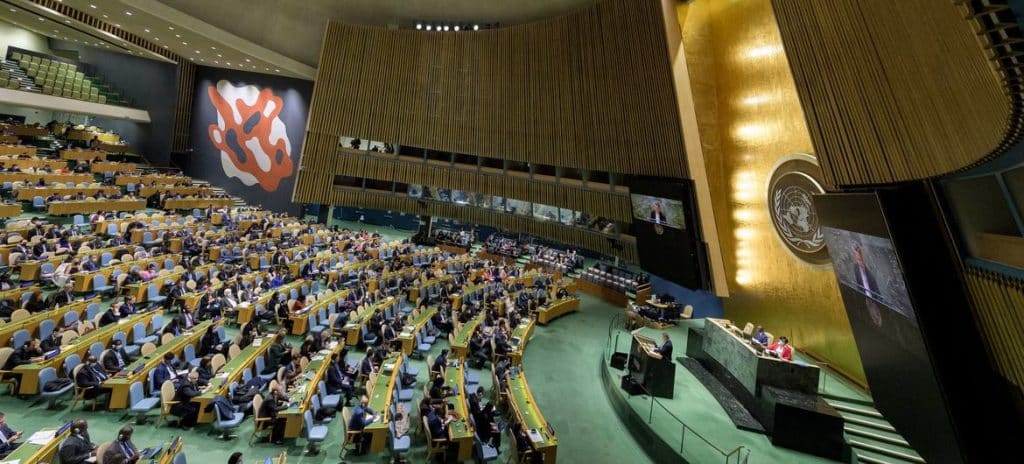A number of political and economic leaders, as well as representatives of civil society, are taking part in the 78th session of the United Nations (UN) General Assembly in the United States of America. Prior to the traditional General Debate of Heads of State and Government – the world’s largest diplomatic gathering – which begins on tuesday 19 September 2023, a conference held the day before on the assessment of the 17 Sustainable Development Goals (SDGs) enabled the various delegations to note that “only 15% of the SDGs have been achieved” to date.
This assessment is a wake-up call, particularly for those countries that are lagging dismally behind in implementing the programme adopted in 2015. In Africa, for example, Ethiopia and Sudan are facing armed conflicts (the Tigray war, the generals’ war) that have compromised the food security SDG2 through falling agricultural productivity and rising commodity prices, to the detriment of people’s food supplies.
An economic and environmental dead end
In addition to fighting, natural phenomena have also been singled out by UN teams in the run-up to 2030. This is the case in East and West Africa, which have respectively experienced prolonged droughts (Somalia, Kenya) and a succession of floods (Ivory Coast, Guinea, Benin). All of these climatic hazards have destroyed schools, power lines and the habitats of a number of animals, undermining the efforts made in recent years in terms of education (SDG4), electrification (SDG7) and the preservation of biodiversity (SDG15).
Read also-Albin Lazare: « The environment and the SDGs are at the heart of city diplomacy »
In a recent report published on the sidelines of the New York talks, the UN Food and Agriculture Organisation (FAO) goes even further, stating that “the planet has lost 100 million hectares of healthy and productive land since 2015”. This regression is worrying environmentalists, and is likely to rekindle the debate about preserving the Congo Basin, considered to be the planet’s second green lung after the Amazon. President Félix Tshisekedi of the Democratic Republic of Congo, who is taking part in the proceedings, is expected to say something about this in his speech from the UN podium.
Financing sustainable development
Although his counterparts from Russia, China, France and the UK, who are also permanent members of the Security Council, were conspicuous by their absence from the Assembly, the idea of “reforming the current global financial system” remains on the agenda, as has been the case at previous international meetings, notably the African Climate Summit in Nairobi, Kenya, the BRICS Summit in Cape Town, South Africa, and the G20 Summit in India. This vision, supported by American diplomacy, should enable progress to be made in the fight against socio-economic disparities from one continent to another, against a backdrop of difficult access to capital for the countries of the South.
Read also-AFRICA: between climate hazards and ecological solutions, women at the heart of SDGs
Indeed, UN Secretary-General Antonio Guterres has made a habit of hammering home his proposal to “mobilise $500 billion to support developing nations to ensure that they have the resources they need to achieve the MDGs”. In any case, considerable efforts remain to be made to bring several African countries up to date on both gender equality (SDG5) and universal access to water and sanitation (SDG6). This is still a difficult equation for rural areas in Madagascar, where the open defecation rate is 42%, according to World Bank figures.
Benoit-Ivan Wansi
